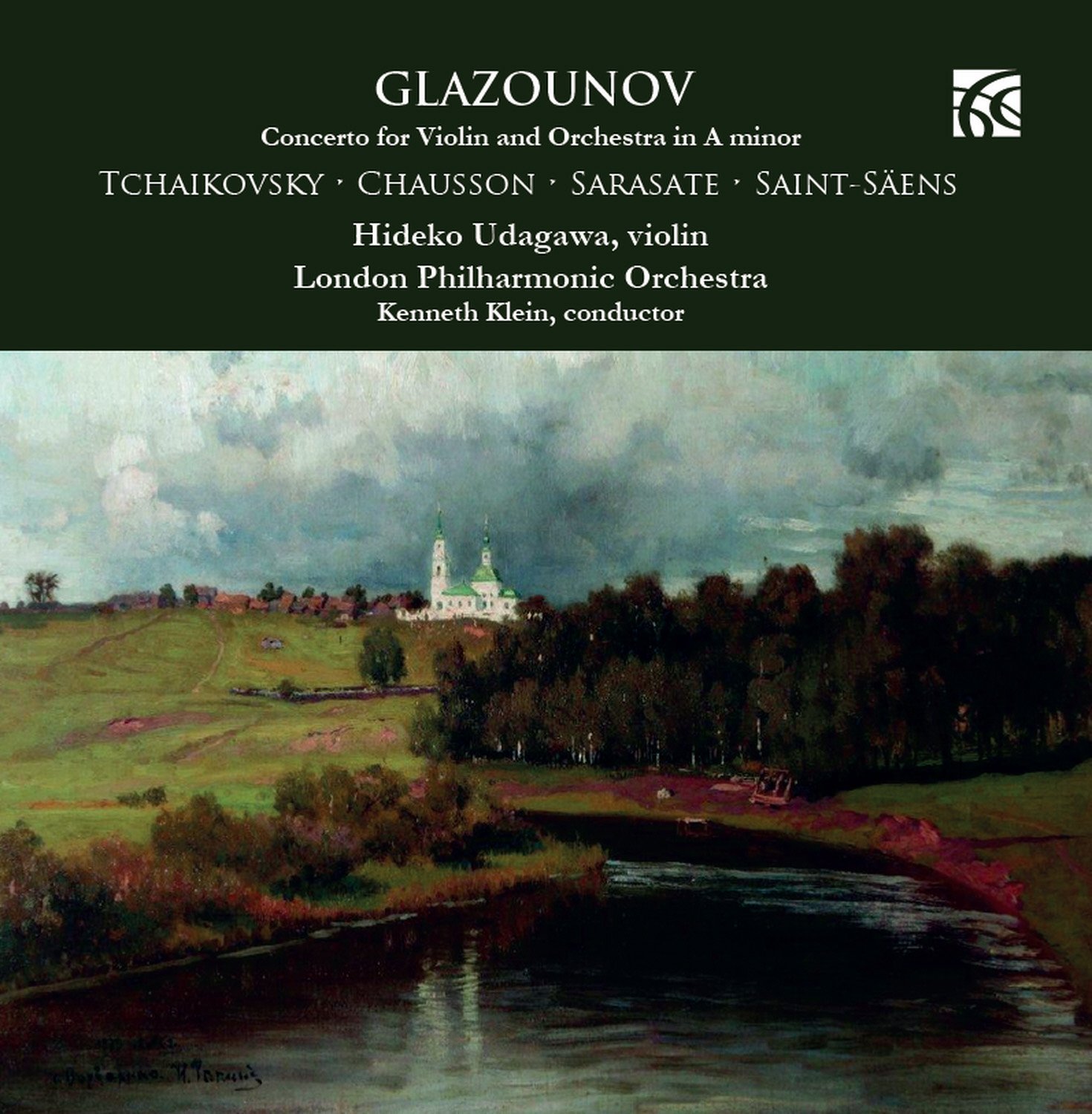 Glazunov: Violin Concerto, with music by Tchaikovsky, Chausson, Sarasate and Saint-Säens Hideko Udagawa (violin), London Philharmonic Orchestra/Kenneth Klein (Nimbus)
Glazunov: Violin Concerto, with music by Tchaikovsky, Chausson, Sarasate and Saint-Säens Hideko Udagawa (violin), London Philharmonic Orchestra/Kenneth Klein (Nimbus)
Here’s another outing for Glazunov’s charmer of a violin concerto, which should be played in public far more – presumably its 20-minute time-scale counts against it. It’s full of tunes and there isn’t a wasted bar – what’s not to like? Hideko Udagawa’s big-hearted performance is up there with the best, without quite supplanting Nicola Benedetti’s recent Decca version as my first choice. There’s lots to admire in a rapt slow movement and Udagawa is excellent in the finale, even if Kenneth Klein’s distantly-balanced LPO occasionally sound as if they’re on autopilot. The couplings make this disc worth a punt, though: Glazunov’s orchestration of Tchaikovsky’s Souvenir d’un lieu cher is a real find, its delicious opening “Méditation” originally meant to be the slow movement of Tchaikovsky’s Violin Concerto.
Chausson’s Poéme is better-known, its Turgenev-inspired narrative gripping in Udagawa’s hands, the steamy orchestral writing well-realised, the slow fade compelling. A schmalzy Sarasate dance is great fun, and there’s Ysaÿe’s transcription of Saint-Saëns’ Caprice en forme de valse, Udagawa’s pyrotechnics never obscuring the music. An enjoyable disc.
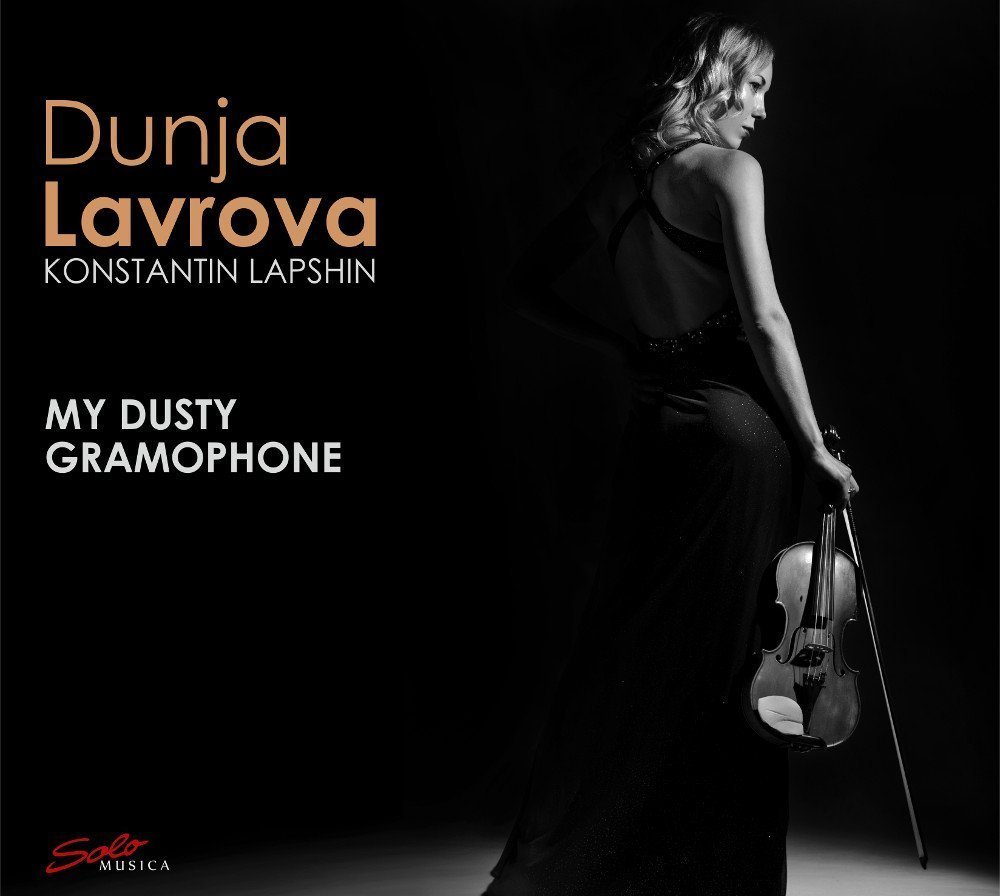 My Dusty Gramophone Dunja Lavrova (violin), Konstantin Lapshin (piano) (Solo Musica)
My Dusty Gramophone Dunja Lavrova (violin), Konstantin Lapshin (piano) (Solo Musica)
On paper you’re tempted to dismiss this disc’s selling point as an attention-seeking gimmick, but read violinist Dunja Lavrova’s engaging sleeve essay and all becomes clear. At first it’s as if we’re listening to a remastered analogue LP from the 1950s: the violin is recorded incredibly closely, sometimes to the detriment of the piano accompaniment, the dynamic range uncomfortably constricted. But the actual playing is exceptionally good, Lavrova’s performances a deliberate throwback to the scratchy Jascha Heifetz records she listened to as a child. This CD’s accidental starting point came when Lavrova heard herself recorded closely on a mobile phone, and a note from her hard-working sound engineer describes the how vintage valve microphones and long takes were deployed to give the illusion of time travel. Your ears do adjust very quickly.
Many of the Heifetz arrangements were new to me. Like a delicious transcription of “Bess, you is my woman now”, a tantalising taster of what the concerto which Heifetz asked Gershwin to compose might have sounded like. And the spiritual Deep River, beautifully showcasing Lavrova’s warm cantabile playing. Halffter’s “Danza de la Gitana” is a stand-out, along with a smouldering Albeniz tango. There are snatches of Debussy, Rachmaninov and Schumann, all of them exceptionally good. I was seduced within seconds: pianist Konstantin Lapshin is a game accompanist, Lavrova’s charisma and sheer chutzpah turning what is essentially a covers album into something very classy indeed. Enormous fun.
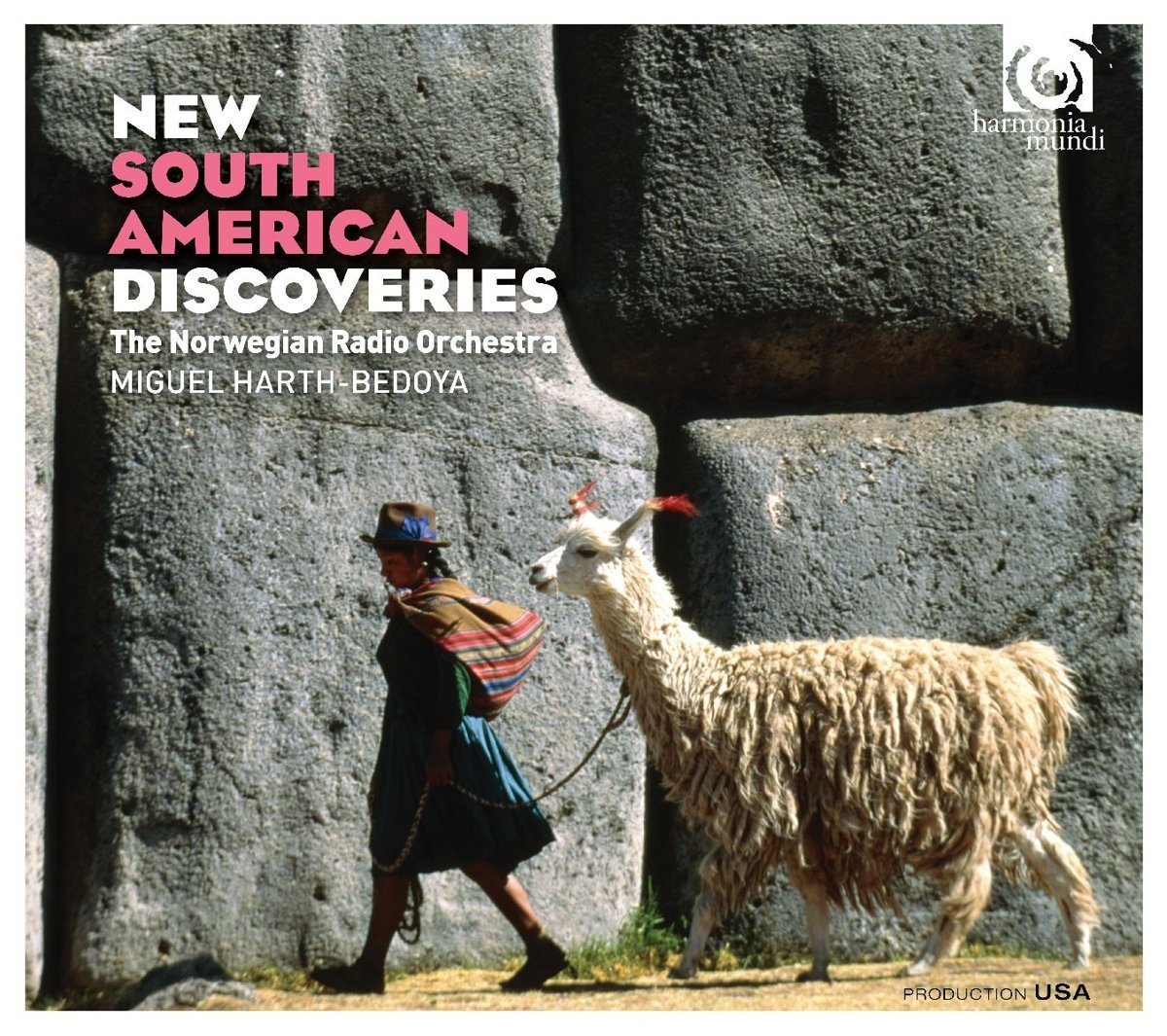 New South American Discoveries Norwegian Radio Orchestra/Miguel Harth-Bedoya (Harmonia Mundi)
New South American Discoveries Norwegian Radio Orchestra/Miguel Harth-Bedoya (Harmonia Mundi)
Contemporary South American orchestral music performed by Norwegians? Oh, yes. This is a fabulous compilation, however unlikely the combination may sound. There’s not a dud track here. Miguel Harth-Bedoya’s Norwegian Radio Orchestra play magnificently, delivering eight works from composers hailing from across the sub-continent. Ascribing particular characteristics to music from different regions is impossible to avoid, so it’s difficult to hear the bold colours and propulsive rhythms without thinking of Villa Lobos or Ginastera.
We get lashings of percussion and plenty of wit, several of the pieces deploy dizzyingly eclectic techniques. Polyrhythms, polytonality, microtones and free dissonance all feature, along with an abundance of singable tunes. This is an anthology which demands to be listened to in a single sitting. Jorge Villavicenci Crossman’s Wayra makes for a superb opener, a concise, virtuosic depiction of rushing wind. Victor Agudelo’s character piece El Sombrerón is a blast, its titular black-hatted folk hero scaring the heebie-jeebies out of assorted drunkards and gamblers. Listen out for the creepy whistling near the close, possibly a nod to Morricone. Marvel at the string effects displayed in Sebastián Vergara’s Mecánica, and at how Diego Luzuriaga uses an Ecuadorian folk melody in his Responsorio.
Sebastián Errázuriz’s brilliant La Caravan pays tribute to an iconic Chilean musical figure murdered by the Caravana de la Muerte during the Pinochet regime, a compelling blend of military drum beats, trombone glissandi and defiant energy. Pianists Kristian Ofstad Lindberg and Sveinung Bjelland share solo duties in Agustin Fernández’s engaging mini-concerto Una música escondida. Antonio Gervasoni’s thrilling Icarus closes proceedings, the only work which doesn’t take inspiration from South American folklore or landscape. Unexpectedly marvellous, captured in punchy, vivid sound. Nifty cover art, too.

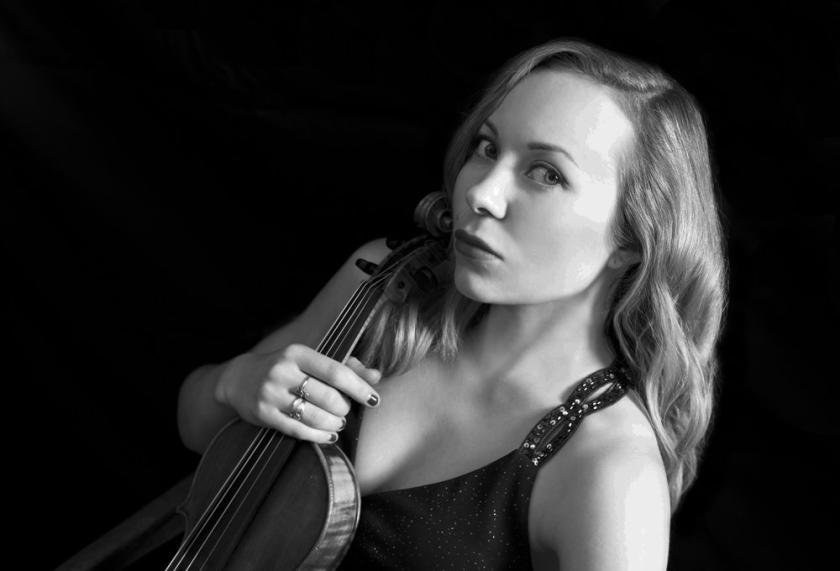

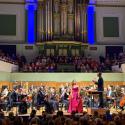
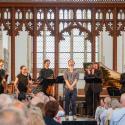
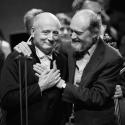








Add comment